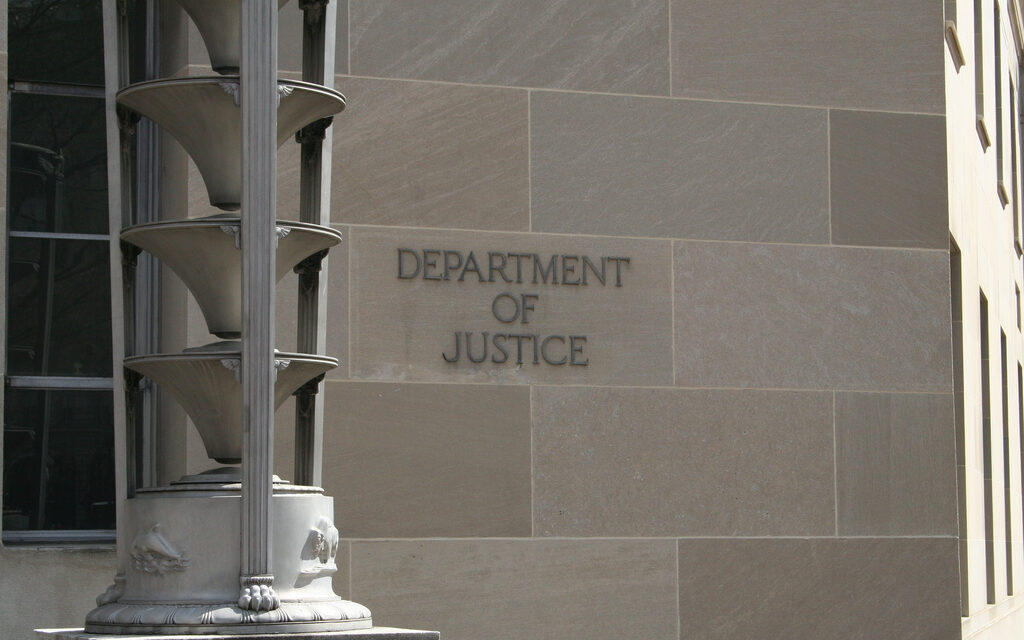Weekly Voting Rights News Update
By Erin Ferns
In the new year, a case that will determine the state of American voting rights will be considered by the Supreme Court. Called “the most important voting rights case since Bush v. Gore” by the Brennan Center for Justice, Indiana’s voter ID case (Crawford v. Marion County Elections Board) may throw a monkey wrench into getting eligible voters to cast ballots in the 2008 presidential election. The constitutionality of the nation’s most restrictive voter identification law is under scrutiny by the country’s highest court and more than two dozen scholars, advocates, and voting rights organizations have filed amicus briefs challenging the law in the hopes of expanding access to the ballot while still maintaining election integrity.
Powered by unfounded allegations of voter fraud – an issue often conflated with election administration issues, such as list maintenance problems and voter caging efforts – voter ID laws like the one being challenged, are a solution in search of a problem. They end up effectively inhibiting voters rather than encouraging them.
For example, a recent study by the Washington Institute for the Study of Ethnicity and Race noted, “Institutional burdens to participating have long been established to have the largest impact on individuals who have fewer resources, less education, smaller social networks and are more institutionally isolated”.
“Increasing barriers to voting are likely to have the largest impact on these groups, and we find strong evidence to support our thesis that strict voter identification laws would substantially effect these groups negatively.”
Last Tuesday, the 24 filers challenging the voter ID law (including Project Vote) put forth several arguments that ultimately assert that Indiana’s law hurts more voters than it helps. The following are some points from the amicus briefs:
Voter fraud is exceedingly rare (Current and Former Secretaries of State; Lawyers Committee for Civil Rights Under Law, et al.; Association of Community Organizations for Reform Now; Brennan Center, et al.)
Indiana’s voter ID law is an unnecessary response to the unlikely threat of polling place fraud, the Brennan Center, Project Vote and other organizations wrote. None of the examples cited by the court of appeals indicate genuine voter fraud, the brief said.
Voter ID puts a burden on voters (League of Women Voters; Rock the Vote, et al.; Current and Former Secretaries of State; Lawyers Committee for Civil Rights Under Law et al.; R. Michael Alvarez, et al.; Rep. Keith Ellison; Asian American Legal Defense; and NAACP Legal Defense Fund)
– Several briefs emphasized the impact of voter ID on minority voters: “A large percentage of Indiana’s African-American voters are included in the more than 2.5 million Indiana households that do not own a motor vehicle, and they most likely will not have the requisite photo ID for voting purposes,” wrote Rep. Keith Ellison (D-MN), who recently introduced legislation banning voter ID laws. “A 6-point gap exists in access to valid photo ID with 84.2% of White registered voters reporting proper ID, compared to 78.2% of Black registered voters,” the Washington Institute Study reported.
– Young voters would be “severely” affected, according to the Rock the Vote amicus brief, which cited a study that showed young people are more likely to vote if allowed to register and vote at campus addresses.
– The R. Michael Alvarez amicus brief cited three studies that show the impact of voter ID on the elderly.
Voter ID is an unconstitutional poll tax (Rep. Ellison; Mexican American Legal Defense and Education Fund)
-“The striking similarities between voter identification laws and the poll taxes this Court rejected less than half a century ago demonstrate that identification requirements are unconstitutional regardless of the level of scrutiny the Court applies. Nevertheless, voter identification requirements should be subject to the same searching scrutiny this Court historically has applied to statutes that target the franchise,” MALDEF wrote.
– Voter ID laws like Indiana’s have been rejected by Congress for unconstitutionality, Ellison wrote. “Indeed, the Senate Conference Report on HAVA highlights this concern: [A]s with the other methods of disenfranchisement in American history, such as literacy tests and poll taxes, the photo identification requirement would present barriers to voting and have a chilling effect on voter participation. There are voters who simply do not have identification and requiring them to purchase photo identification would be tantamount to requiring them to pay a poll tax.”
Voter ID disenfranchises low-income and less educated voters (Rock the Vote, et al.; R. Michael Alvarez, et al.)
Voters with less income and education are most affected by voter ID requirements, according to a study co-authored by Alvarez. High school graduates (21%) are more likely to be without valid identification than college graduates (11%), the Washington Institute study reported. The findings are almost identical to statistics on voters without valid ID based on income: those earning less than $40K per year (21.1%) were more likely to be without proper ID compared to those earning $40K-$80K at 12.7%.
Voter ID laws are implemented at the discretion of poll workers and election officials (League of Women Voters; Asian American Legal Defense; R. Michael Alvarez, et al.)
“The Voter ID Law does not define ‘conform[ ]'(much less resolve how a voter with several variations of her name should be treated) and it does not explain how the similarity or dissimilarity in likeness of the person pictured on the proof of identification to the prospective voter is to be determined,” the LWV amicus brief noted. “Nor does the Voter ID Law require any specific training in the consistent application of these criteria.”
There are less onerous methods of attaining election integrity ( Professor Rick Hasen; Rep. Ellison; Lawyers Committee for Civil Rights Under Law, et al.; Brennan Center, Project Vote, et. al)
– Voter ID law is not needed to prevent possible voter fraud. Of the seven states that require photo ID, Indiana and Georgia are the only states that do not provide a “less burdensome” alternative for voters without a photo ID, such as Michigan, which allows voters to sign an affidavit.
– There are other ways for Indiana to achieve its objective through less burdensome means, including adopting the methods of other states that ask for utility bills or match signatures for absentee balloting.
– As a result of the dramatic rise in election administration disputes and the decline in public confidence in the electoral system since 2000, the court should articulate clear and fair standards to resolve election administration disputes, wrote Loyola law professor, Rick Hasen.
If the Supreme Court upholds Crawford, then voting rights advocates should brace for a flood of voter ID bills to be introduced into state legislatures across the country. Project Vote will be tracking these and all election-related laws in states with large populations or histories of election irregularities through our ElectionLegislation.org website.
Also, Rep. Ellison’s bill in Congress would regulate the ability of states to pass and enforce voter ID laws. You may find out more about the bill here and contact Rep. Ellison’s office here.
Quick Links:
Websites and Blogs:The Brennan Center For Justice
Report:
“The Disproportionate Impact of Indiana Voter ID Requirements on the Electorate.” Washington Institute for the Study of Ethnicity and Race. Nov. 8, 2007.
In Other News:
Rep. Keith Ellison (D-MN) recently announced plans to pursue legislation granting all ex-felons the right to vote in federal elections. “Allowing felons to vote signals our value on redemption,” he said in “We should believe in second chances. We should believe in redemption.” Read more of this Associated Press report here.
Thousands of Florida voter applications are “getting lost in the system,” according to this Pensacola News-Journal report. Ethnic minorities run a greater risk of being initially rejected by state computer programs‘ review process: “Blacks were 6.5 times more likely than whites to be rejected at that step. Hispanics were 7.2 times more likely to be failed.”
Erin Ferns is a Research and Policy Analyst with Project Vote’s Strategic Writing and Research Department (SWORD).




